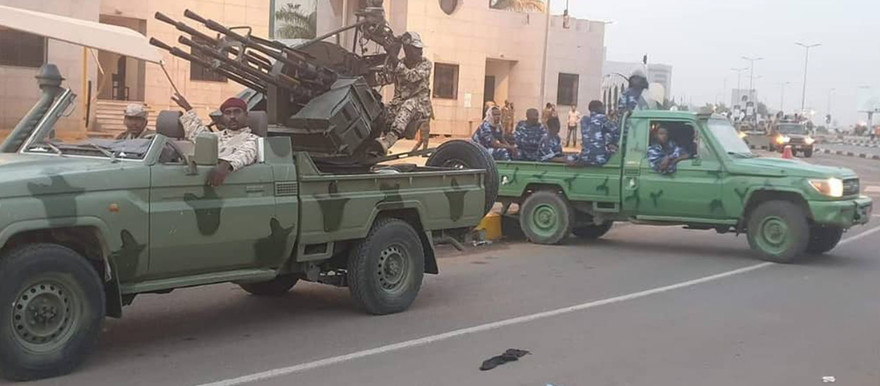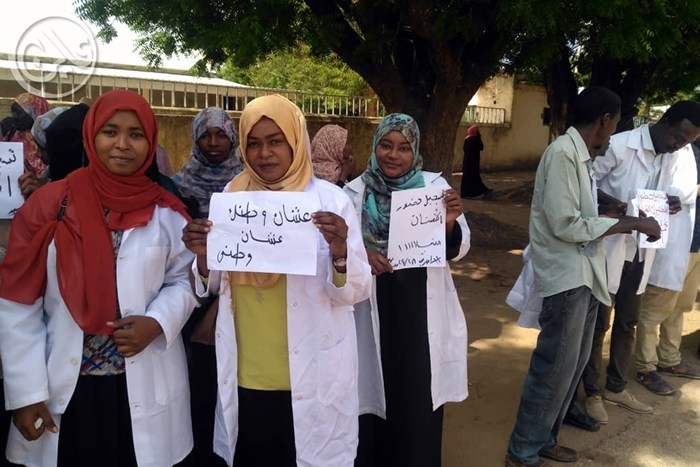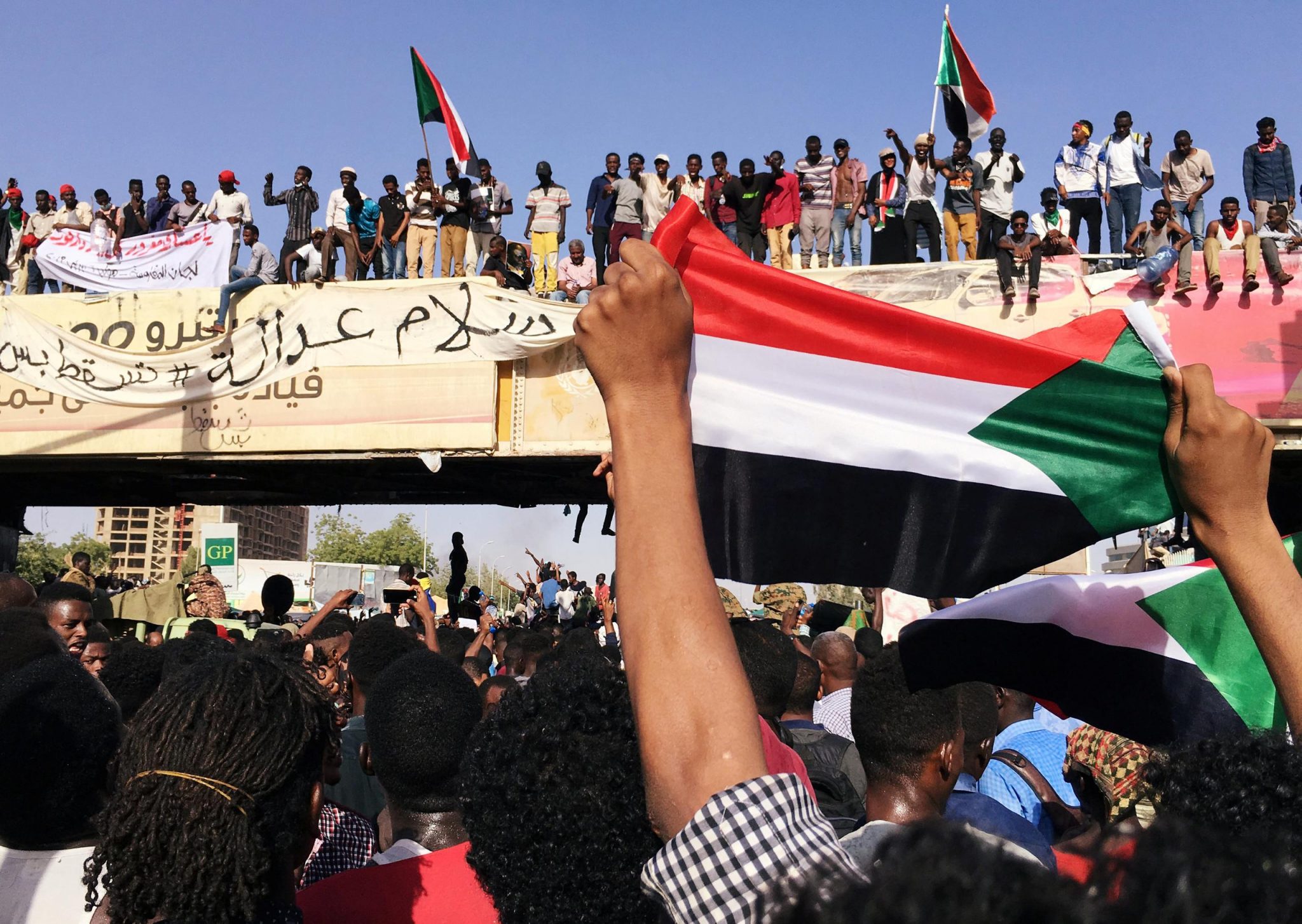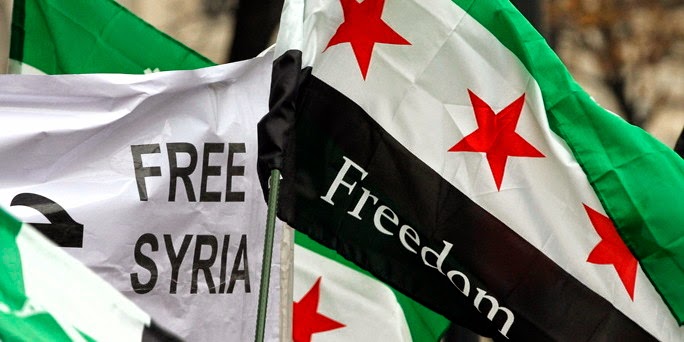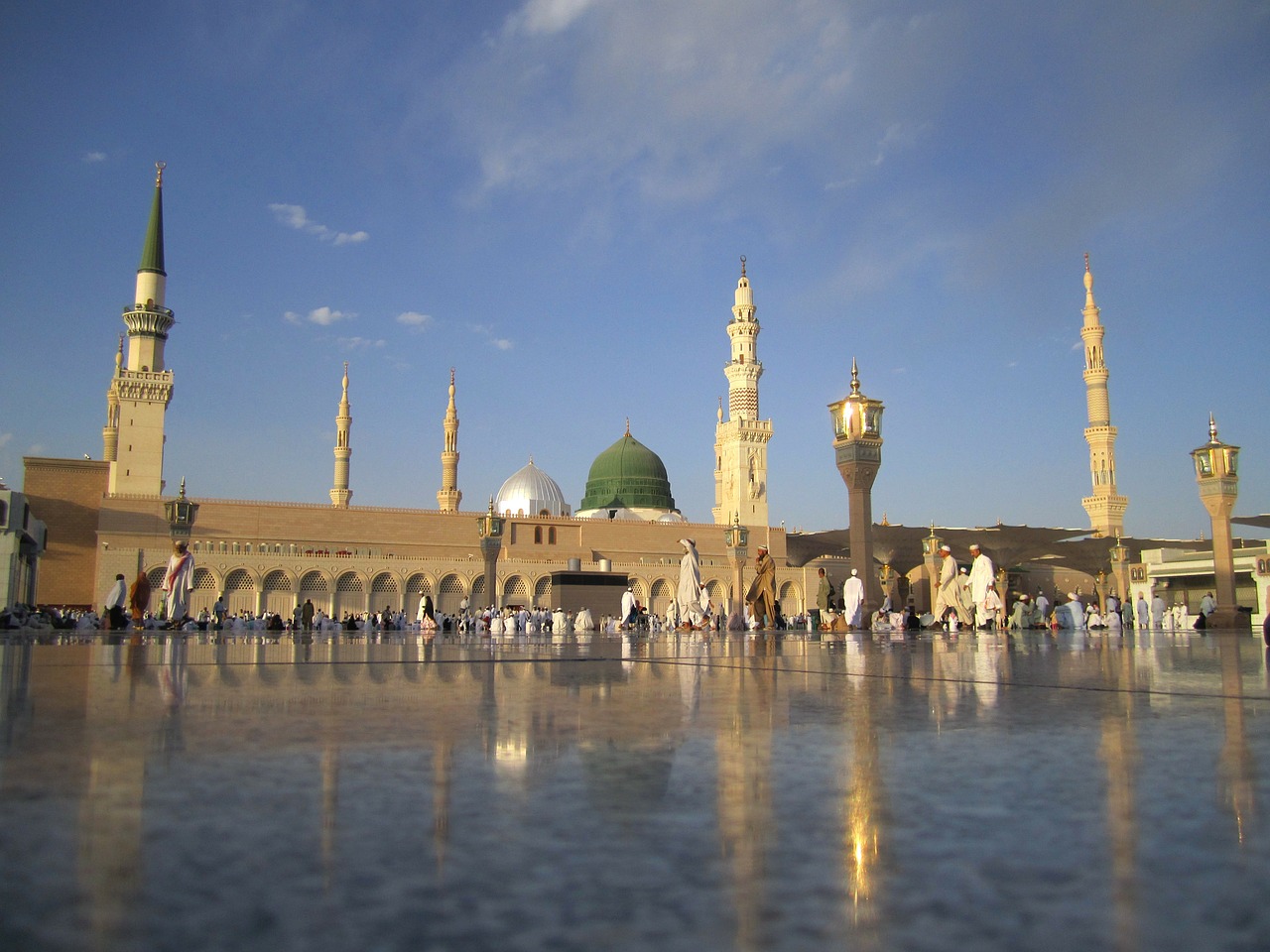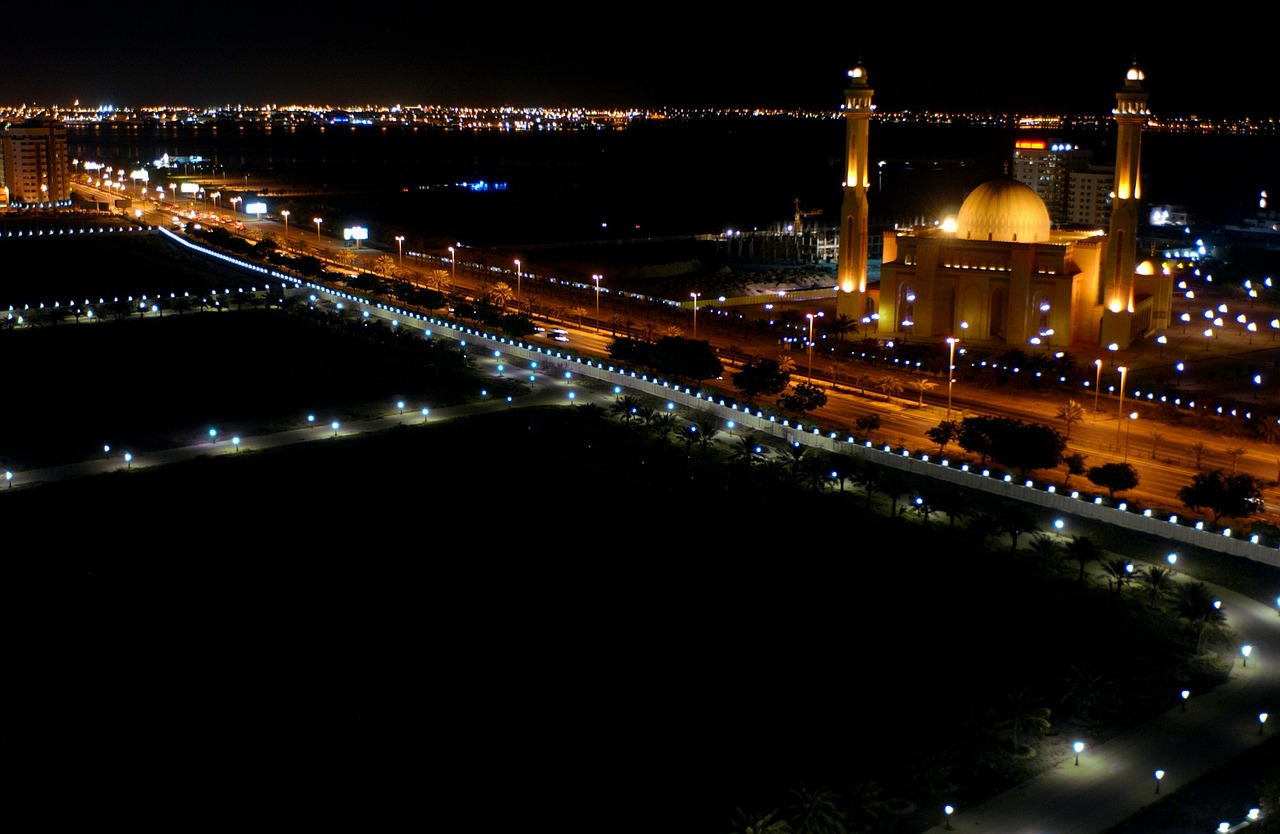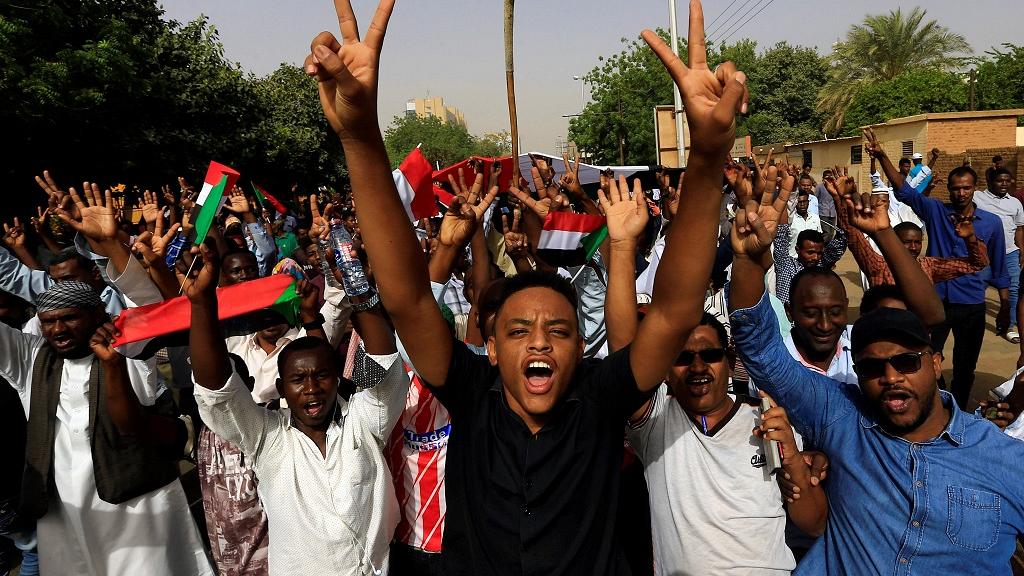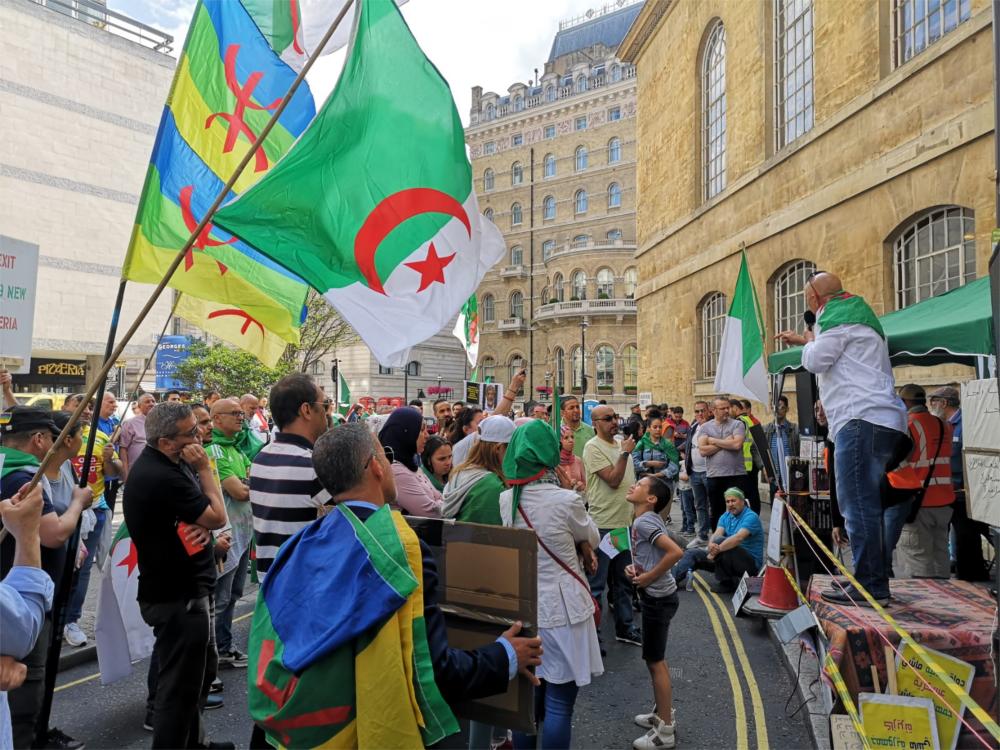
Algeria: Berber protesters defy flag ban
For the past two weeks, thousands of protesters across Algeria have defied attempts by the security forces to seize Amazigh (Berber) flags after army chief Ahmed Gaïd Salah declared that only the national flag would be permitted in the ongoing pro-democracy demonstrations. Police used tasers against protesters in the capital Algiers June 30, and made numerous arrests. Among those arrested for wearing a t-shirt with the Amazigh national symbol was 25-year old Samira Messouci, an elected member of the People’s Assembly (regional parliament) in Tizi Ouzou wilaya (province). The Assembly has issued a statement demanding his release. (Photo of protest at Algerian embassy in London via MENA Solidarity Network)



